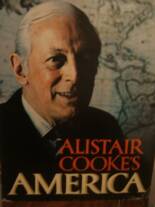




60% of U.S. inmates cannot read or write a letter ProLiteracy Worldwide
In Tarrant County, 19% of adults above age 25 did not graduate from high school and 8% have less than a 9th grade education U.S. Census Bureau, 2000
Adult illiteracy carries an estimated price tag of $17 billion annually as a result of lost income and tax revenue, unemployment or underemployment, incarceration, and supplemental training for entry-level jobs National Institute for Literacy
Forty-three percent of adults with low literacy skills live in poverty compared to less than 5% of persons with strong literacy skills National Institute for Literacy.
Each month I look for topics on which to write to reflect the essence of urban life from the beautiful to the challenging. This month, in writing about education, I thought it would be appropriate to pick an organization which is on the front lines in helping to improve the lives of numerous adults, and by extension their families, through their work. LIFT, or Literacy Instruction for Texas http://www.lift-texas.org/, on Main Street, on the east side of Downtown Dallas, has been helping people literally where they are in life, and enabling them to find their own perception of success through instruction in reading. This year more than 8,000 individuals will take the initiative to improve their lives through participation in one of LIFT’s reading programs. I visited LIFT one day and spoke briefly with Cheryl Parker, their Director of Programs.
Chuck: How many adults in North Texas are illiterate?
Cheryl: The actual percentage of illiterate adults in North Texas is 21%.
Chuck: TWENTY ONE PERCENT! That’s a huge number. It’s really that many?
Cheryl: Yes Chuck, and what is an even graver statistic, is of the age group of 19-44 year olds in North Texas, 49% of them are functionally illiterate.
Chuck: What specifically do you mean by functionally illiterate?
Cheryl: What that means is that their reading capability is below a 4th grade level.
Chuck: Hmm.
Cheryl: Chuck, what is tragic about this is these 19-44 year olds are the young parents and the emerging grandparents. Their lack of reading capability impacts not only their children, but also their future grandchildren.
Chuck: How would their lack of ability to read impact their children and potential grand children?
Cheryl: Look at it this way, if a child comes to a parent and asks him or her to read to them and the parent says something like, I’m too busy or provides another excuse, that child is going to get the message that reading is really not important and therefore is not going to do it. The number one determination of a child finishing school is seeing a parent reading at home.
Chuck: If the children then do not do it, they are not going to model reading for their children, and so this becomes a multi-generation problem.
Cheryl: We have an informal slogan around here which says, “To break the cycle of illiteracy, you must teach a parent to reach a child.”
Chuck: How close to proficiency can a literacy program like yours get an adult who has never learned to read?
Cheryl: Proficiency means different things to different people. Individuals have different needs. A 65 year old man came to our program. He had never learned to read. He left after reading his first book. I asked him why he had left so soon, and he said that he now knew how to read. I kept thinking that was not what the data was telling me. However he insisted that he now knew how to read. He loves baseball and could now read the statistics on baseball in the newspaper. He was proud that he could read STC. Do you know what STC is?
Chuck: I’m afraid I don’t.
Cheryl: Well then, you see he is more proficient than you in that area. STC means St. Louis Cardinals. He is retired and he has learned how to get everything that he wants. He just wanted to be able to read the sports page.
Getting back to your original question, every time a book is read, sixty percent of our participants finish it, and progress to the next level. They are improving about one grade level each time they finish a book.
Chuck: Do you find improvements in social poise in the students who come through your reading programs?
Cheryl: People who can’t read are very embarrassed by that fact. One thing that we emphasize in our programs is the peer to peer encouragement that they can experience in the classroom. As they are learning, they are helping each other. That is a lot more encouraging to them than a teacher standing up at the front and always correcting them.
We have a program geared to young children called, “Lift a Paw for Literacy”. The children will sit in a room and read a story to a dog who represents a non-threatening force. There is a monitor in the room as well. One thing the monitor might say to the child when he is finished reading is “That is very good, Dasher, (the dog) doesn’t understand page four which you read. Can you go back and read page four for Dasher again?”
Chuck: How has the age of the Internet impacted literacy in teenagers and young adults?
Cheryl: If you can’t read, your options are limited. You will not spend time on the Internet because it will be too frustrating for you.
Chuck: I have read about programs in the UK as well as the Bard College Clemente Course in this country that have taught the illiterate and underprivileged how to read, and some of the students have become quite successful in life. Does LIFT use any classics in its educational programs?
Cheryl: Our program doesn’t. We find that survival is the key need of many of the individuals who come to us. They need to learn to read so that they can read a medicine bottle, write a resume and fill out a job application.
Let me put it this way. I am not a proficient cook. I need to learn how to cook carrots, not necessarily rack of lamb. Now the rack of lamb might be a good goal for me to learn how to cook one day in the future, but it is not my need today.
I am going to leave you with an illustration. Consider if you were dyslexic and were unable to read. What would life look like to you then?
"I was invisible in class. I sat there, from 2nd to 11th grade and never learned to read, but they just kept passing me to the next grade. Then a teacher told me I'd NEVER learn, so I thought I might as well just stop coming."
Reading: From STC to Rack of Lamb
Posted: July 1, 2012 by Chuck DeShazo
